Health and Global Policy Institute (HGPI) is a non-profit, independent, non-partisan think tank established in 2004 to create citizen-centered health policy. Independent of any particular political party or organization, HGPI continues to propose innovative new ideas and values for building a just and healthy society. We have contributed to solving global health and medical issues by presenting effective health policy options with a perspective not only for Japan but also for the world.
As the 21st century dawned and the situation surrounding the world and Japan changed drastically, it became a new challenge for Japan to involve not only the government but also various independent think tanks in the provision of public policy. In response to this movement, Chairman Kiyoshi Kurokawa established the “Specified Non-Profit Corporation, the Tokyo Advanced Healthcare Policy Center” in April 2004 and changed its name to “Health and Global Policy Institute” in March 2005. Since then, HGPI has continued to work on health issues by launching projects in various fields.
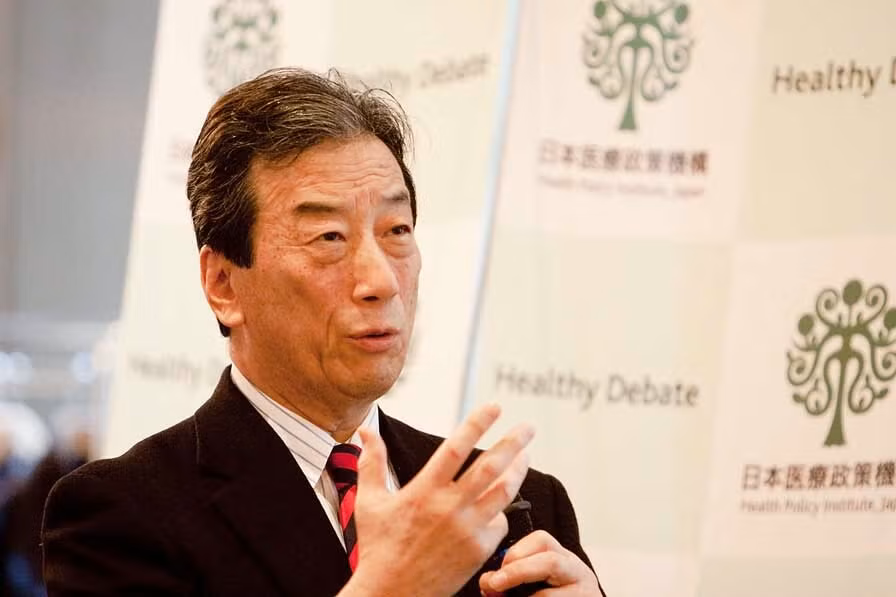
“We will make our policy proposals widely available to the public, examine their merits and demerits, and conduct as many activities as possible to incorporate them into national policies. We will initiate research and studies within our organization and utilize external networks to meet the demands and expectations of the public, and we will propose policies and conduct activities with the aim of developing highly regarded policies and strategies for implementing such policies that can gain the support and contributions of the public.” (Kiyoshi Kurokawa, Chairman)
―From Annual Report 2004 to 2005―
More than 20 years after HGPI’s founding, this principle remains at the core of its work. In celebrating this milestone, HGPI has reflected on its journey, which includes 170 published policy recommendations and reports.
■2005: Policy Recommendations with a Focus on ‘Women’s Health’
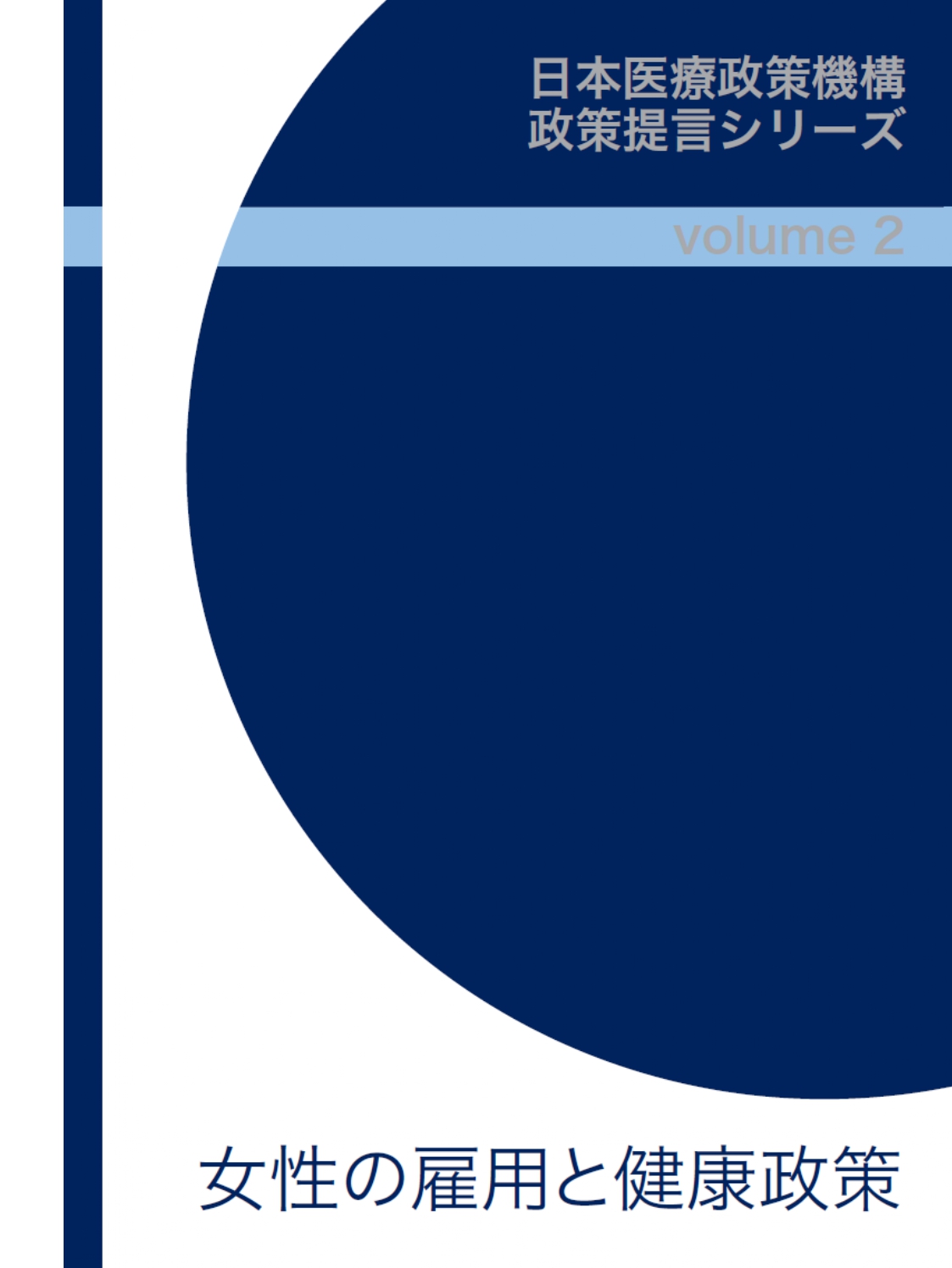
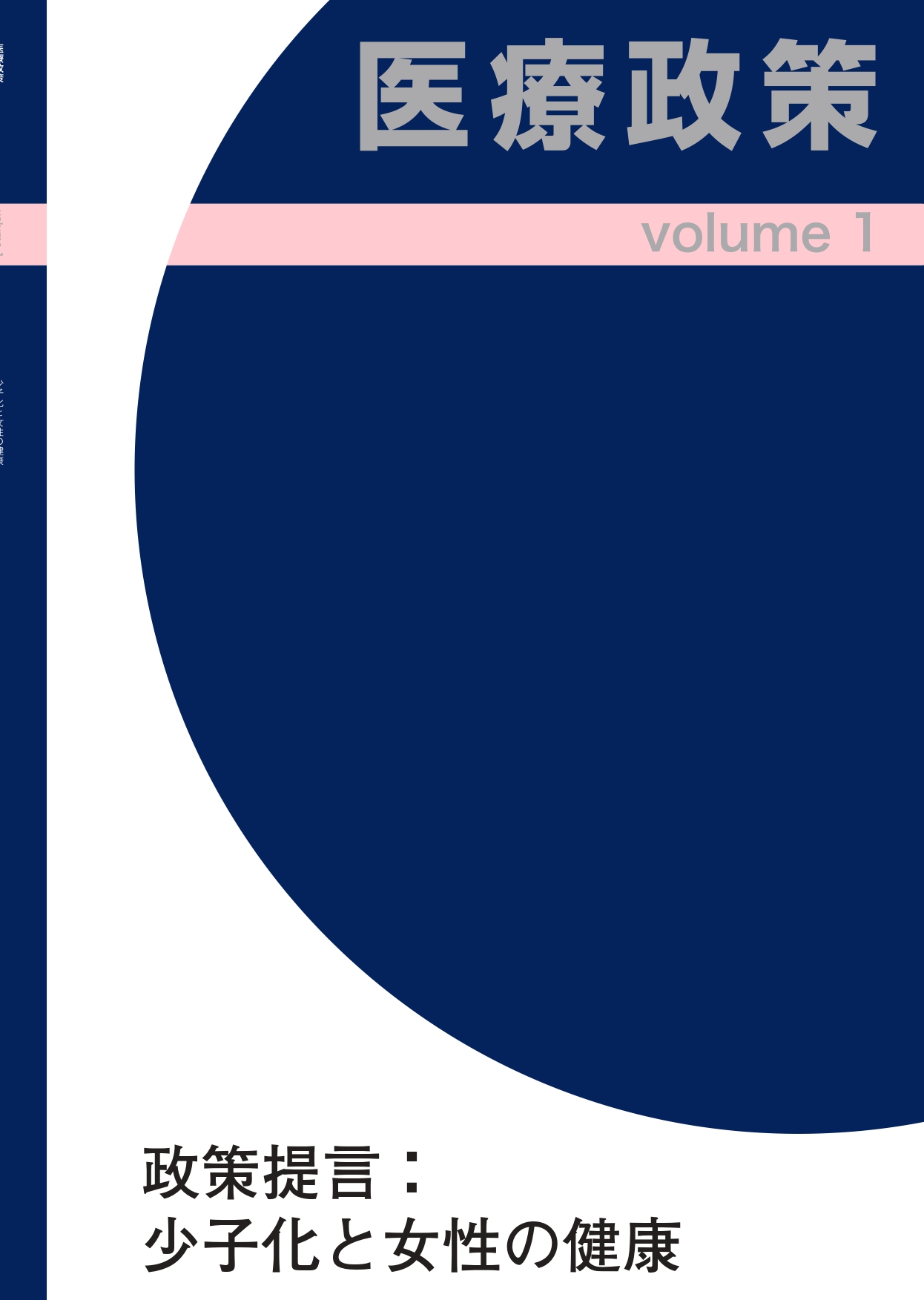 As the first policy recommendations after the establishment of the HGPI, “Low Birthrate and Women’s Health” and “Women’s Employment and Health Policy” were published in March and May 2005. These proposals placed “women’s health” at the center of the policy. Since then, through a series of events and surveys, recommendations have been published to guide health policy.
As the first policy recommendations after the establishment of the HGPI, “Low Birthrate and Women’s Health” and “Women’s Employment and Health Policy” were published in March and May 2005. These proposals placed “women’s health” at the center of the policy. Since then, through a series of events and surveys, recommendations have been published to guide health policy.
■2006: Initiatives and Symposiums Held on “Health Policy Issues and Choices as Defined by the Japanese Public”
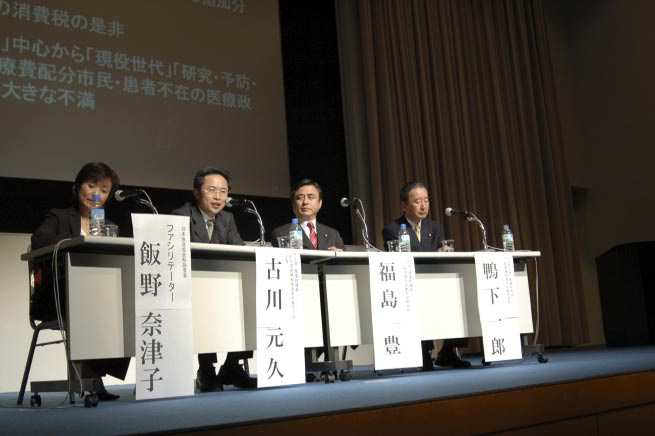 In February 2006, based on the public opinion survey, a symposium entitled “Health Policy for the Japanese Public – Time for Direction-Setting” was held to explore what kind of health policy the public wants. At the symposium, key health policy issues were discussed with various stakeholders. The multi-stakeholder discussion was unusual at the time and attracted a great deal of attention.
In February 2006, based on the public opinion survey, a symposium entitled “Health Policy for the Japanese Public – Time for Direction-Setting” was held to explore what kind of health policy the public wants. At the symposium, key health policy issues were discussed with various stakeholders. The multi-stakeholder discussion was unusual at the time and attracted a great deal of attention.
In March of the same year, “The Health Policy Needed by Cancer Patients and Their Families” was published, which contributed to the enactment of the Cancer Control Act, and the policy proposal “Regenerative Medicine: The Road to Clinical Application” was released in December, highlighting the importance of regenerative medicine.
■2007: Participated in Policy Advocacy Activities by Cardiovascular Patient Advocacy Organizations
The “International Patient Organization Symposium; Patient Participation in Cardiovascular Health Policy” was held in April 2007. This meeting brought together cardiovascular disease patients and global leaders to discuss the importance of patient involvement in policy advocacy. This was a catalyst for the involvement of patient groups in policy advocacy in the area of cardiovascular disease.
■2008: Discussed Japan’s leadership at the “Global Health Summit”
 In February 2008, HGPI co-hosted the first-ever Global Health Summit with the World Bank. Former Prime Minister Junichiro Koizumi and other world leaders gathered for an in-depth discussion on Japan’s leadership in global health. The Summit was an important opportunity to deepen Japan’s leadership in preparation for the Fourth Tokyo International Conference on African Development (TICAD IV) and the G8 Toyako Summit, which were held in Japan the same year.
In February 2008, HGPI co-hosted the first-ever Global Health Summit with the World Bank. Former Prime Minister Junichiro Koizumi and other world leaders gathered for an in-depth discussion on Japan’s leadership in global health. The Summit was an important opportunity to deepen Japan’s leadership in preparation for the Fourth Tokyo International Conference on African Development (TICAD IV) and the G8 Toyako Summit, which were held in Japan the same year.
■2009: Held “Cancer Policy Summit 2009” and Established “Health Policy Forum”
In May 2009, the “Cancer Policy Summit 2009” was held, bringing together various stakeholders, including 37 patient-related committee members from the Prefectural Cancer Control Promotion Councils of 24 prefectures. At this event, outstanding regional case studies were shared and priorities for cancer control in Japan were discussed, demonstrating the importance of patient participation in health policy. In preparation for the general election for the House of Representatives that year, the 35-member “Health Policy Forum” was established to prepare a “Health Policy – 3 Key Issues for the Manifesto” and submit it to each political party. It proposed securing stable financial resources, concentrating investment in acute care, establishing an autonomous system of medical specialists, and transparency in the policy making process.
■2010: “Health Policy Summit” Brought Together Diverse Stakeholders
In February 2010, the “Health Policy Summit” was held with the participation of a wide range of stakeholders and attracted significant media attention as the first major health policy meeting after the change in Japan’s ruling party. Former high-level health officials from the United Kingdom and the United States also participated, bringing a global perspective to the discussions and covering a wide range of health policy issues.
■2011: Responded to the Great East Japan Earthquake and Promoted the Control of Non-communicable Diseases (NCDs)
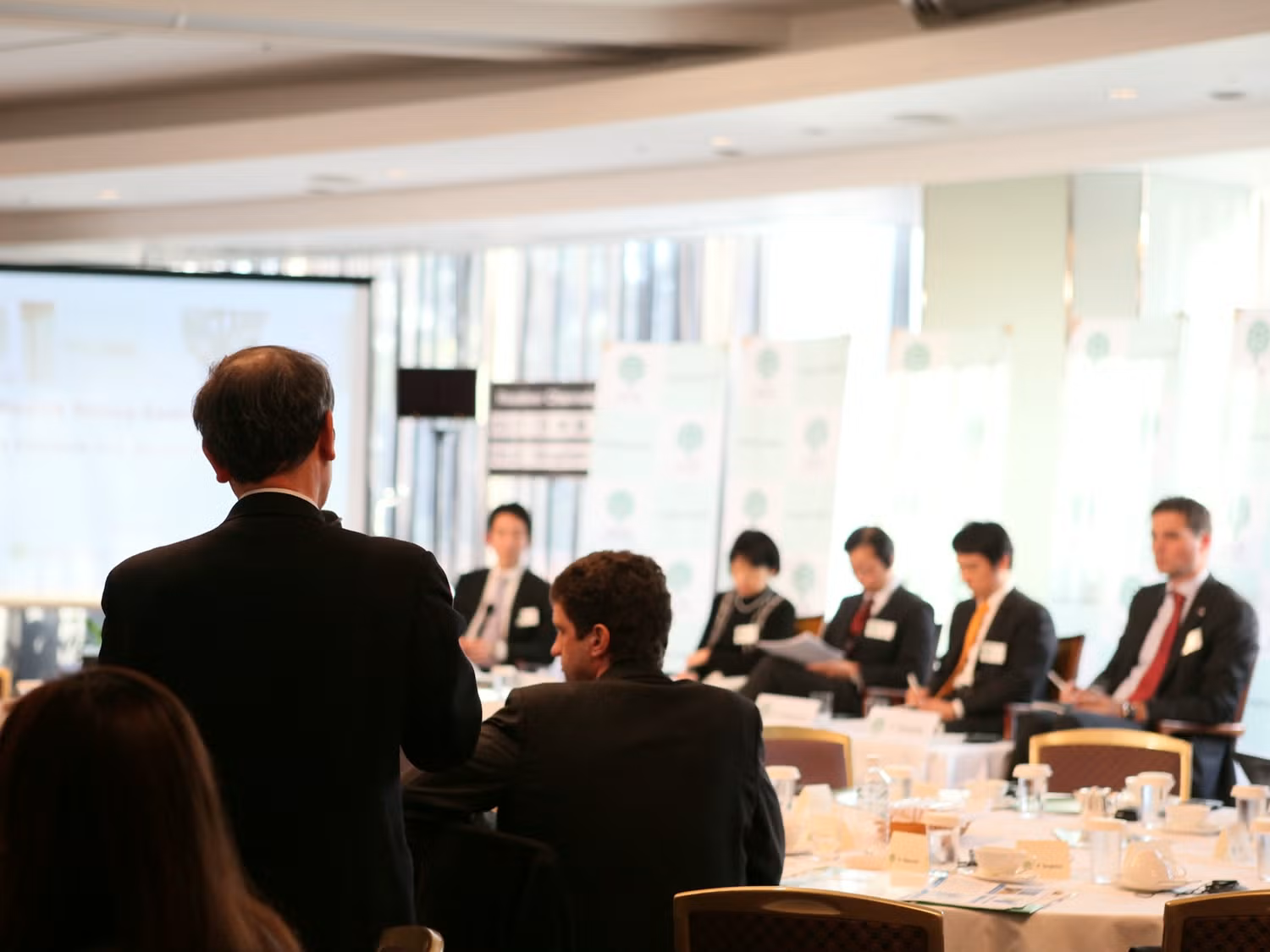 In January, as a newly accredited non-profit organization, HGPI held the Stroke Policy Forum 2011 with the Council to Promote Legislation on Stroke Control, which brought together Diet members and others involved in stroke prevention. At this forum, the importance of the Basic Act On Stroke and Cardiovascular Disease was emphasized across party lines.
In January, as a newly accredited non-profit organization, HGPI held the Stroke Policy Forum 2011 with the Council to Promote Legislation on Stroke Control, which brought together Diet members and others involved in stroke prevention. At this forum, the importance of the Basic Act On Stroke and Cardiovascular Disease was emphasized across party lines.
Immediately after the Great East Japan Earthquake on March 11, an emergency team was formed to provide recovery assistance, and a wide range of support activities were carried out in cooperation with U.S.-based international medical aid organizations. In May, a memorandum of understanding was signed between Iwate Prefecture and the U.S.-based NGO to continue providing medical support and assistance to the affected area. In Yamada Town, Iwate Prefecture, HGPI also provided medium- to long-term support for the reconstruction of the medical system.
In addition, HGPI was one of the first to draw attention to the issue of combating non-communicable diseases (NCDs), which was on the agenda of the UN General Assembly High-Level Meeting in September, and held the “NCD Japan Forum 2011” to discuss the importance of combating NCDs with domestic and international stakeholders at an early stage and to provide new perspectives for Japan’s health policy.
■2013: Provided New Perspectives in the African Healthcare Sector
In conjunction with the 5th Tokyo International Conference on African Development (TICAD V), HGPI and the Japan Center for International Exchange (JCIE) hosted the “International Symposium 2013 – Keys to Economic Growth in Africa: Investing in Health” in May. Business leaders from Africa and Japan, as well as representatives from international organizations, were invited as speakers, and examples of public-private partnerships were discussed in detail, providing new perspectives on the health sector in Africa.
■2014: Innovative Approaches to Solving the Challenges of an Aging Society
In November 2014, HGPI co-hosted the “Taking Action on Dementia: Opportunities for Social Investment – Global Dementia Legacy Event Japan Private Sector Side Meeting” with the Organization for Economic Cooperation and Development (OECD). The meeting showcased innovative private sector-led initiatives, urban development initiatives, robotic technology, and door-to-door delivery services to monitor vulnerable populations. The meeting attracted media attention and participants from around the world as it showcased new solutions to dementia and other challenges associated with aging societies.

■ Standing Up To Global Scale
Health & Healthcare ChallengesWe originally launched this organization to
address the need for an independent think tank, however small, to reflect the voices of ordinary people in health policy. Over the past ten years, with multi-stakeholder activity at the core, we have continued to provide forums for various stakeholders to extensively discuss issues. In this way, I believe we have had some success in impacting on society.Alongside multi-stakeholder involvement, a global perspective has been one of our commitments from the very beginning. Information has always been disseminated in both English and Japanese, and we often collaborate with global think tanks. In recent years, adapting social systems to support healthy and sustainable societies has become a pressing issue as almost every major country is facing an aging society, increasing prevalence of chronic disease, widening disparities, and economic challenges. Believing that increased global activity is essential to address issues shared across borders, we changed our English name to “Health and Global Policy Institute” in February 2011 to reflect that enhanced perspective.
Among numerous domestic organizations, we have acquired a strong 10-year track record of results, and through cooperation and exchange with a variety of organizations in other countries, I am confident we are now making a successful effort to exert leadership in the international
community as well.
Now entering our 11th year, Health and Global Policy Institute will continue to cooperate with stakeholders far and wide to present effective health policy choices for Japan and to work toward addressing today’s global health issues. (Chairman Kiyoshi Kurokawa)—From Annual Report 2014—
■2015: “Health Policy Academy” Program Started
The Health Policy Academy was established for those interested in learning the basics of health policy. The Academy provided the core elements of health policy in an easy-to-understand manner and welcomed participants from a variety of backgrounds, including doctors, nurses, government officials, journalists, and business people. By FY2023, 12 terms had been completed and over several hundred participants had completed the program.
■2016: Pursued Measures to Address the Issue of Antimicrobial Resistance (AMR)
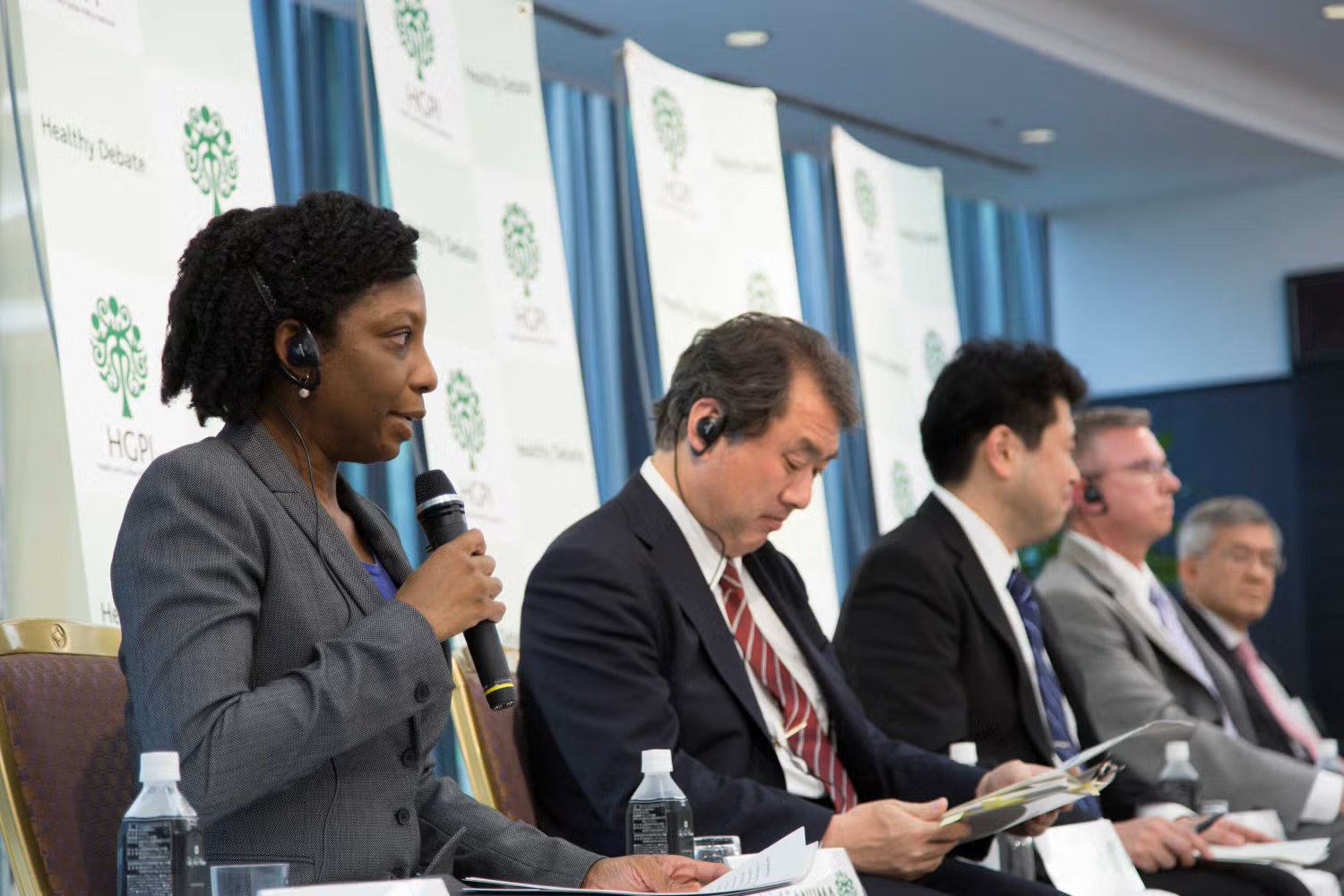 In April 2016, the first AMR Japan-US Experts Meeting was held under the theme “Japan’s Role in Addressing Global Antimicrobial Resistance (AMR).” This meeting brought together industry, government, academia, and the private sector to deepen discussions on measures to address the issue of antimicrobial resistance (AMR). As a result, “14 recommendations in 6 areas for promoting the AMR Action Plan,” including strengthening countermeasures, collaboration, and promoting research and development, were compiled and presented as policy recommendations.
In April 2016, the first AMR Japan-US Experts Meeting was held under the theme “Japan’s Role in Addressing Global Antimicrobial Resistance (AMR).” This meeting brought together industry, government, academia, and the private sector to deepen discussions on measures to address the issue of antimicrobial resistance (AMR). As a result, “14 recommendations in 6 areas for promoting the AMR Action Plan,” including strengthening countermeasures, collaboration, and promoting research and development, were compiled and presented as policy recommendations.
■2017: Balancing the Development of Medical Technologies with the Sustainability of the Healthcare System
In April 2017, the first global expert meeting on health systems and sustainability, titled “Rebalancing Health Systems: Innovation and Sustainability” was held. At the meeting, national and international experts and diverse stakeholders exchanged views on how to achieve the sustainability of equitable and high-quality health systems while promoting the development of the latest medical technologies and medicines. Recommendations emphasized the importance of balancing the financial burden and public health benefits when assessing the value of medical technologies and the importance of public participation in the decision-making process.
■2018: New Initiatives for Improving Women’s Health and Dementia
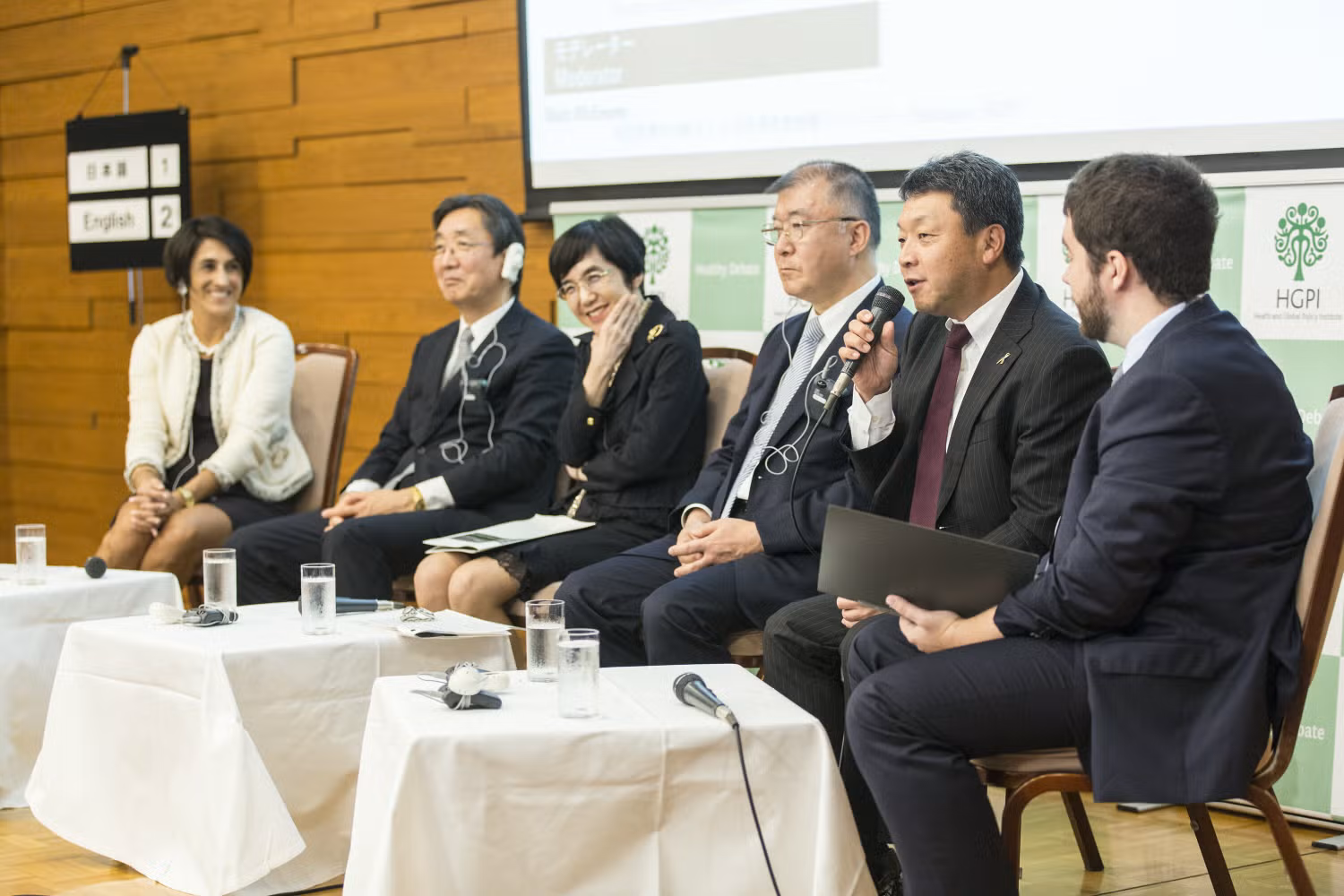 In 2018, as in 2016, the Survey on Health Promotion and Working Women was conducted to explore the impact of improving women’s health from a socioeconomic perspective. The survey continues to be widely used to contribute to the advancement of women’s health policy, having been featured in the media, at academic conferences, and in the budget committee of the Diet.
In 2018, as in 2016, the Survey on Health Promotion and Working Women was conducted to explore the impact of improving women’s health from a socioeconomic perspective. The survey continues to be widely used to contribute to the advancement of women’s health policy, having been featured in the media, at academic conferences, and in the budget committee of the Diet.
In May, the NCD Global Forum for Civil Society was held, where patients and stakeholders from Japan and abroad discussed a wide range of approaches to non-communicable diseases (NCDs), including diabetes, cancer, dementia, and stroke/heart disease.
In October, “Designing for Dementia” was launched to deepen understanding and support for dementia and to develop initiatives for a future of better living with dementia. Also in November, “AMR Alliance Japan” was established to address the issue of antimicrobial resistance (AMR) and contribute to the promotion of AMR countermeasures.
■2019: Launch of Non-partisan Diet Member Briefing
In October 2019, NCD Alliance Japan was renewed as a full member of the NCD Alliance and resumed its work to promote comprehensive control of non-communicable diseases (NCDs).
In November, a new health policy study group, titled “30-minute Health Policy Update,” was launched for bipartisan Diet members. The study group aims to deepen knowledge and understanding of health policy through presentations by experts in various fields, followed by an exchange of views.
■2020: Launch of New Projects and Global Recognition
In 2020, the Lauder Institute of the University of Pennsylvania, USA, ranked HGPI second in the domestic health policy category and third in the global health policy category in its report ranking the world’s think tanks. This is the highest ranking in Asia and the twelfth consecutive year that the Institute has been ranked.
In July, the Mental Health Policy Project released “Mental Health 2020: Five Perspectives on Mental Health Policy.” This is a compilation of current issues and proposals based on multi-stakeholder interviews.
In addition, the “Proposal on a Global Procurement System for Coronavirus Disease 2019 (COVID-19) Vaccines” was released as part of the project to promote immunization and vaccination policies.This facilitated discussions on policy progress necessary for the resumption of major international events.
■2021: “Health Policy Summit 2021” and Promotion of Vaccine Policy
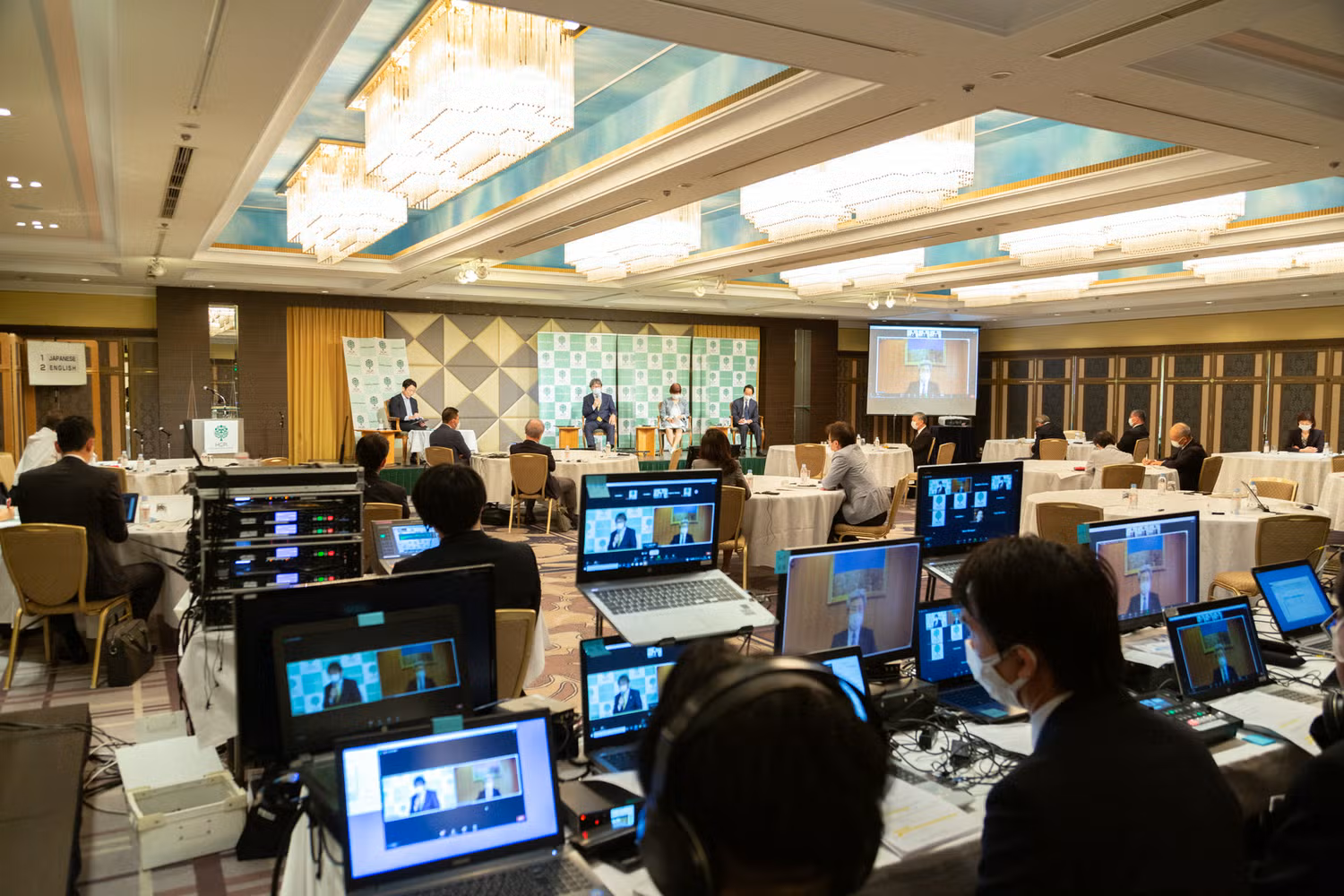 The “Health Policy Summit 2021” discussed solutions to the challenges identified by the COVID-19 Pandemic. In addition, the “A Life Course Approach to Immunization and Vaccination Policy” was released to promote appropriate vaccination for all generations.
The “Health Policy Summit 2021” discussed solutions to the challenges identified by the COVID-19 Pandemic. In addition, the “A Life Course Approach to Immunization and Vaccination Policy” was released to promote appropriate vaccination for all generations.
In addition, the “Young Professionals’ Roundtable for Public-Private Opinion Exchange on Social Security and Healthcare Policy” was launched, where young professionals from the public and private sectors engaged in discussions across their positions.
In October, the HGPI Seminar, which covers a wide range of topics, celebrated its 100th session.
■2022: Implementation of Multifaceted Health Policy Recommendations
The results of the “Public Opinion Survey on Child-Rearing in Modern Japan” were recently published. The survey was conducted to provide concrete indications and recommendations for necessary and effective measures to achieve a society in which those who wish to conceive a child can do so. The survey deepened society’s understanding of fertility and infertility.
AMR infection risk management measures were also recommended to be included in the Basic Policy on Economic and Fiscal Management and Reform 2022, as well as mental health support for children and planetary health measures.
HGPI has continued to make a significant impact on health policy in Japan and abroad by publishing proposals on a wide range of health-related topics, such as the “Kyushu-Shikoku Summit on Promoting Measures for CVD Control” and the publication of the “Best Practices in Promoting Early Dementia Detection, Intervention and Support.”
■2023: Research Survey on Socioeconomic Factors and Health
A comprehensive study of socioeconomic factors and women’s health was conducted in 2023, and detailed recommendations were published based on the results. Policy recommendations were also developed to improve access to cancer genomic medicine and to promote measures to combat cardiovascular disease in each prefecture. These activities are intended to contribute to the further development of health policy and the realization of a society in which everyone has access to high-quality medical services.
■Efforts Towards Continued Policy Provision as an Independent Think Tank
HGPI has been instrumental in promoting a wide range of advocacy and international cooperation on medical and health policy. Remaining committed to the founding principles, as a nonpartisan think tank, HGPI will continue to provide society with the policy options it needs.
HGPI’s mission is “achieving citizen-centered health policy by bringing stakeholders together as an independent think-tank”.
Deep gratitude extends to everyone who has supported and endorsed HGPI thus far.
Please refer to HGPI’s recommendations and reports here.



